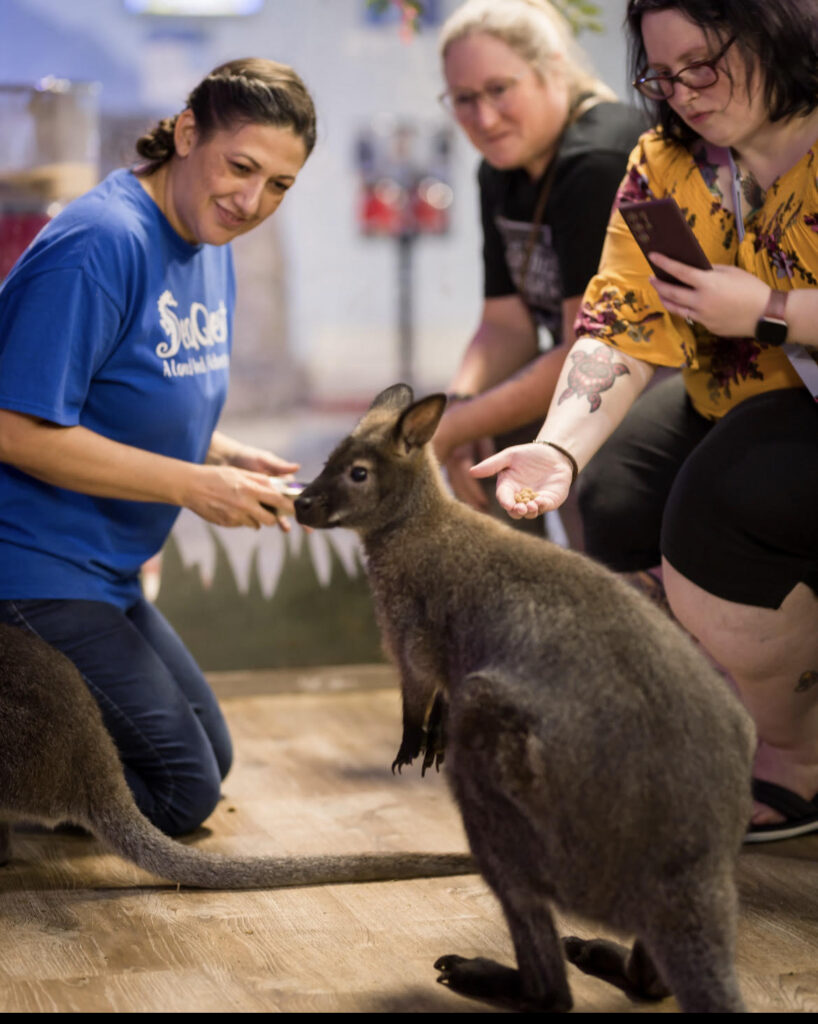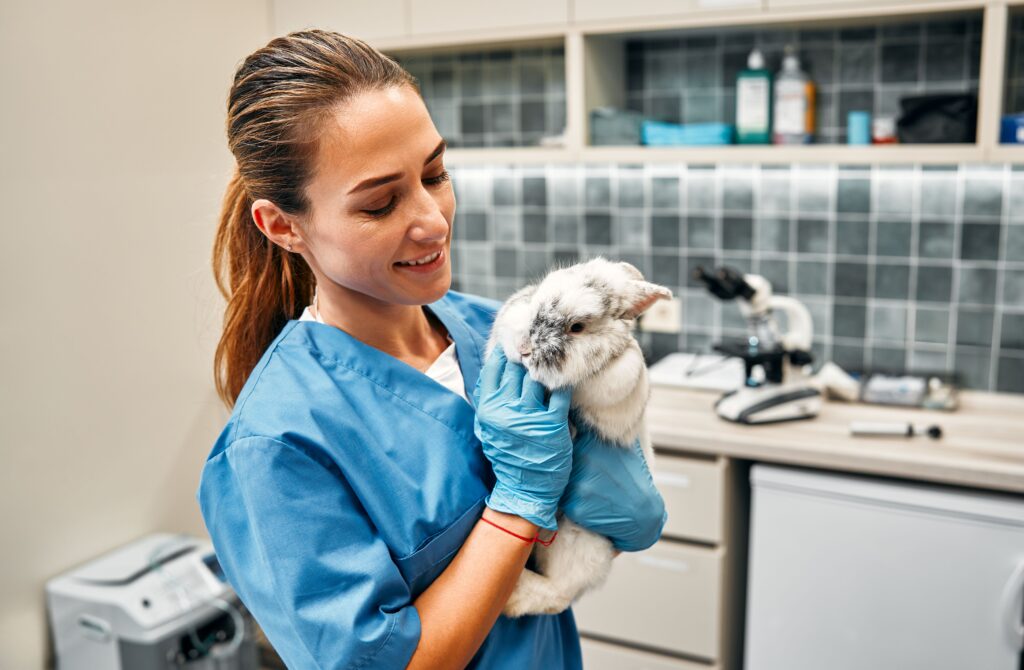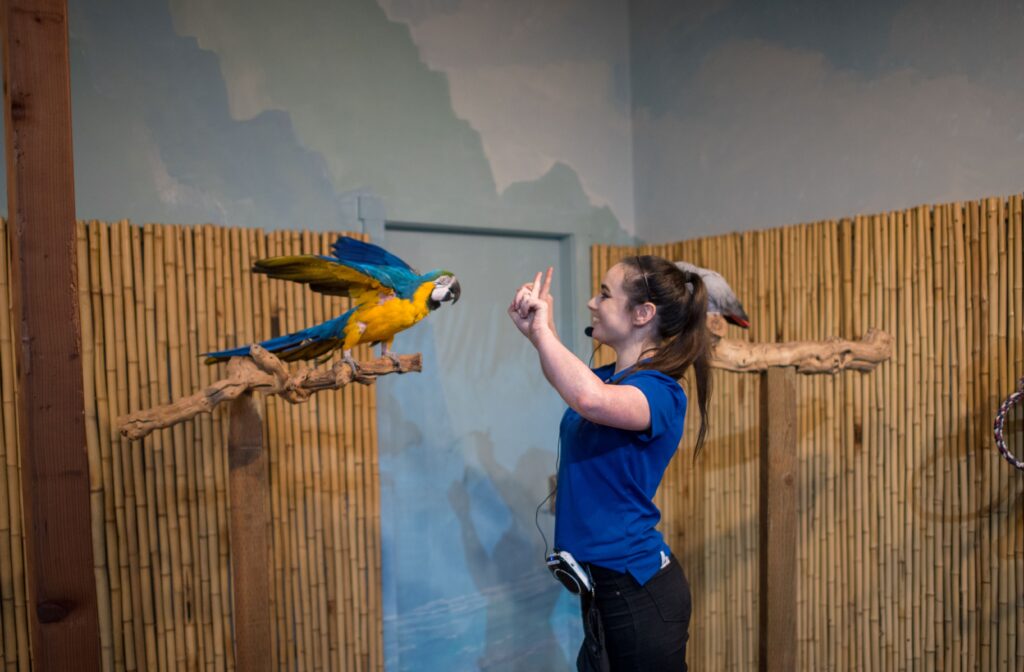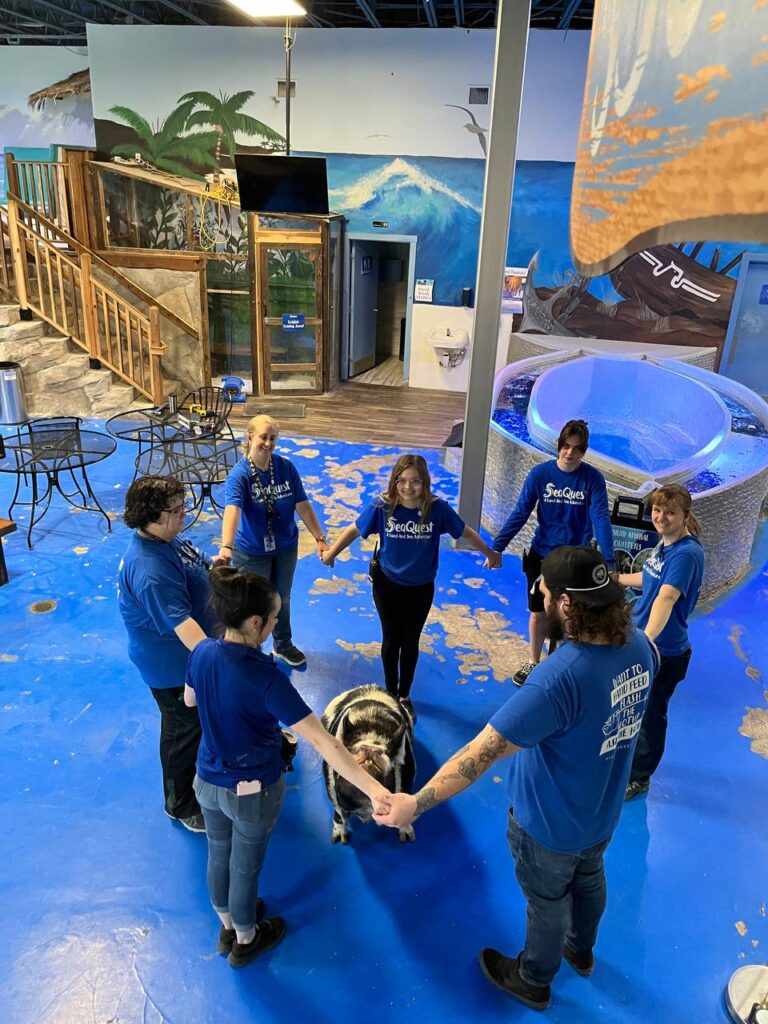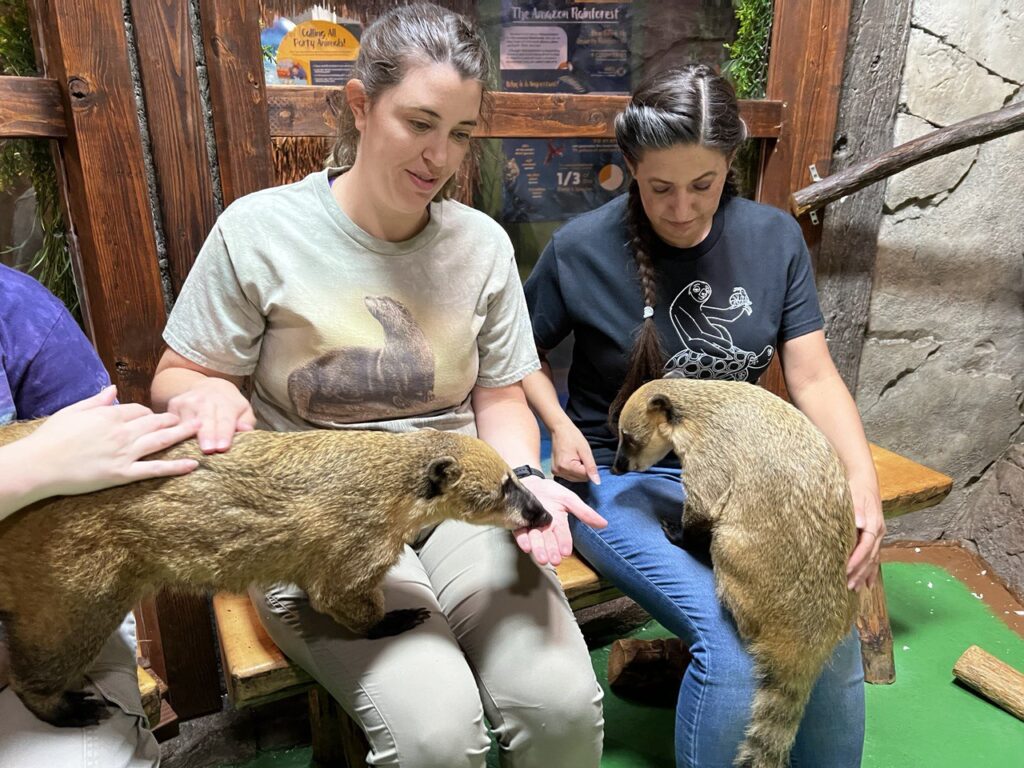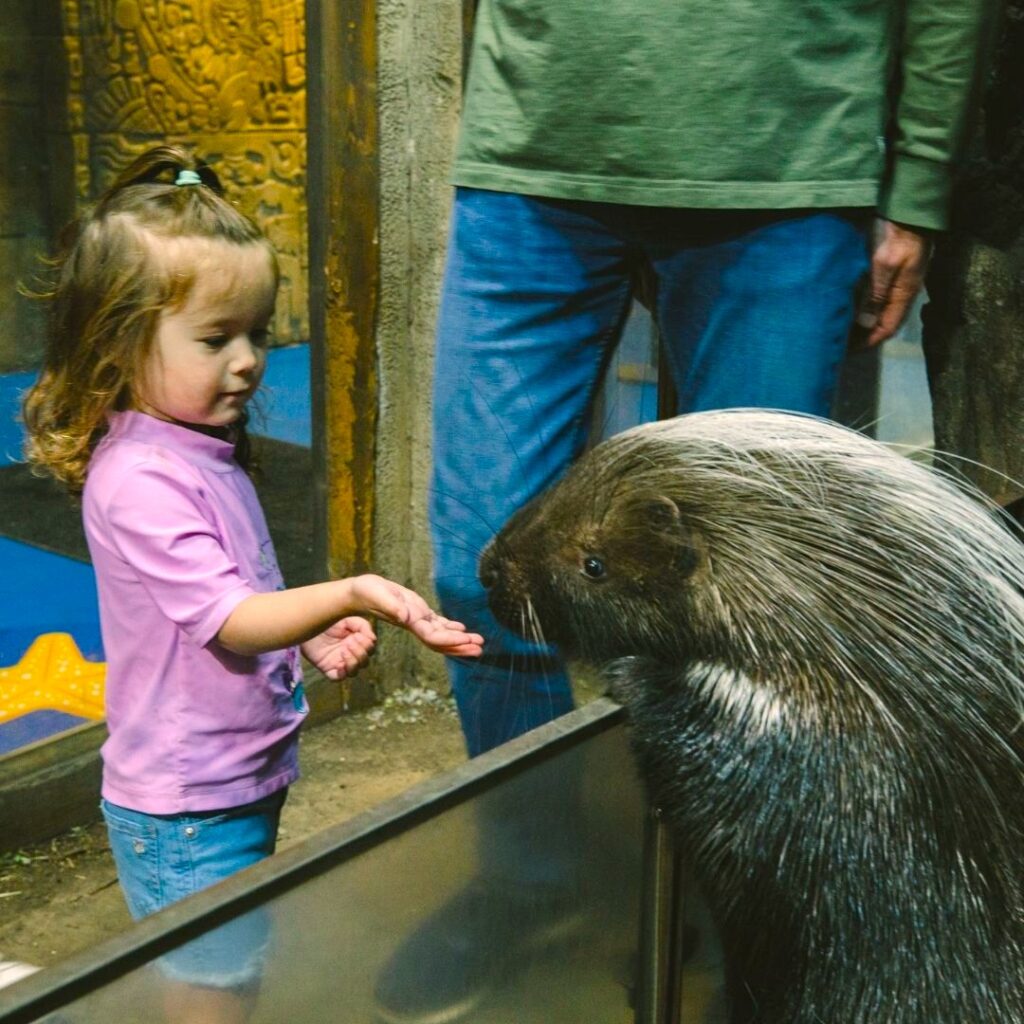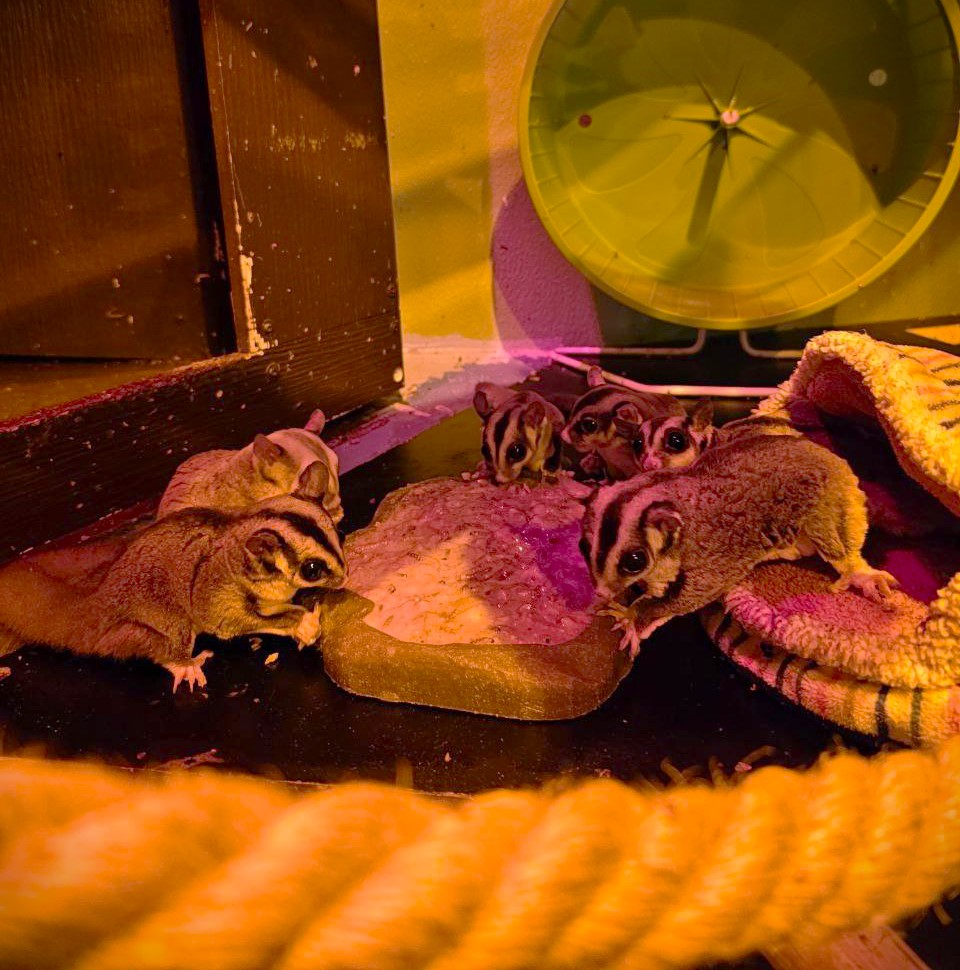Staff Training at SeaQuest: How Are Staff Considered for Employment?
Share it on:
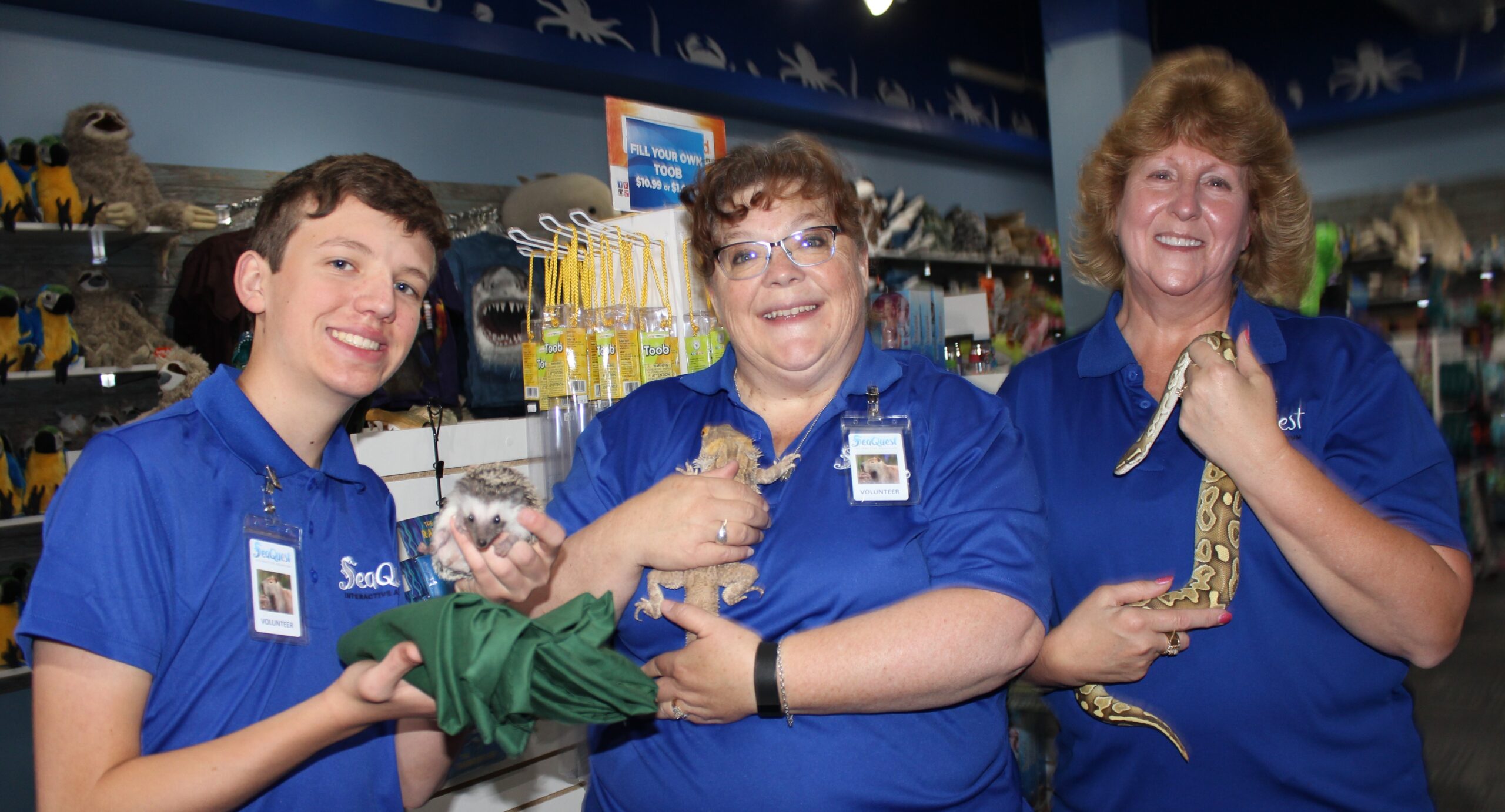
SeaQuest is a notable player in the bustling world of zoo and aquarium attractions, blending entertainment, education, and an unwavering commitment to animal well-being. This zoo and aquarium chain has carved its niche by providing visitors with an immersive experience while prioritizing the care of its diverse aquatic and land-based residents.
At SeaQuest, the backbone of this operation lies in its capable and dedicated staff, who navigate the delicate balance of ensuring a memorable visit for guests and maintaining the health and happiness of the resident animals. From the qualifications sought in potential hires to the day-to-day tasks that keep the facility running smoothly, we aim to uncover the layers of staff training at SeaQuest.
SeaQuest Mission Statement and Commitment to Animal Welfare
At the core of SeaQuest’s operations lies a steadfast mission to provide a captivating and educational experience for visitors, all while maintaining an unwavering commitment to the well-being of their diverse animal inhabitants. SeaQuest’s mission statement encapsulates the essence of its dedication to fostering an understanding and appreciation for marine life.
More than just entertainment, SeaQuest strives to be a beacon of responsible and ethical animal care. This commitment extends to the heart of their staff training programs, where employees enhance the visitor experience and are meticulously prepared to uphold the highest animal welfare standards.
Animal Welfare
SeaQuest’s dedication to the highest animal welfare standards is at the forefront of its mission, reflecting a profound commitment to the ethical treatment of all its marine and terrestrial inhabitants. With the belief that each creature deserves respect and proper care, SeaQuest has implemented comprehensive policies to ensure the well-being of every resident animal.
SeaQuest aquariums have veterinarians who visit each location on a monthly basis to inspect habitats and conduct routine check-ups. Changes to habitat, diet, or routine are submitted to site veterinarian and National Husbandry Directors. This ensures that every change our animals experience, no matter how small, is ethically implemented.
Check out our video: A Day in the Life Of Our Veterinary Staff!
The well-being of animals at SeaQuest is meticulously safeguarded through various policies covering habitat maintenance, veterinary care, and daily routines. Habitat design is critical, creating environments that mimic the species’ natural habitats, allowing for physical and mental stimulation. Regular veterinary check-ups, preventive healthcare measures, and swift responses to signs of distress contribute to a proactive approach to animal health.
At SeaQuest, every decision, from exhibit design to daily care routines, is guided by the principles of animal welfare. The organization recognizes that a thriving environment is essential for animals to exhibit natural behaviors and live healthy lives. This commitment extends to providing diverse and appropriate diets, engaging in enrichment activities, and fostering social interactions among compatible species. SeaQuest’s emphasis on animal welfare ensures that every aspect of the facility is geared towards creating a safe, comfortable, and enriching home for its residents.
Staff Training
SeaQuest’s staff undergo in-depth animal care, conservation, and education training programs. These initiatives go beyond standard customer service, ensuring that employees are well-versed in the diverse needs of the animals in their care. From species-specific knowledge to best practices in habitat maintenance, the training creates well-rounded individuals committed to animal welfare and visitor satisfaction.
SeaQuest fosters a culture of continuous learning, offering staff ongoing opportunities for professional growth. Workshops and certifications in animal welfare and environmental conservation keep employees informed about the latest industry advancements, ensuring they maintain expertise and contribute to the organization’s commitment to excellence.
The benefits of staff training are evident in the improved quality of care for animals and the enhanced visitor experience. Well-trained employees excel in recognizing signs of distress, implementing enriching activities, and maintaining overall animal well-being. This expertise translates into richer educational interactions, making SeaQuest not just an entertainment destination but a hub for immersive lessons in conservation.
Qualifications for Employees
When it comes to assembling a team dedicated to providing an exceptional visitor experience and ensuring the well-being of resident animals, SeaQuest places a premium on diverse qualifications in its hiring process. While formal degrees are valued, SeaQuest recognizes the significance of experience, considering candidates without degrees for roles where relevant expertise and passion prevail. Certifications, though beneficial, are not always prerequisites, as the organization is committed to providing training opportunities for individuals who exhibit a genuine commitment to animal care and conservation. SeaQuest’s approach to qualifications reflects a holistic view of potential employees, prioritizing a blend of education, experience, and a shared dedication to the organization’s core values.
Can You Be an Employee Without a Degree?
SeaQuest recognizes that formal education is not the sole indicator of dedication and competence. Positions are available for individuals without degrees, provided they demonstrate a genuine passion for animal care, a wealth of relevant experience, and a commitment to continual learning. The organization values a diverse team, where individuals contribute unique perspectives and skills to the shared goal of providing exceptional care to the animals.
SeaQuest is committed to fostering growth and development for employees without degrees through robust on-the-job training programs and mentorship initiatives. These programs equip individuals with the necessary skills and knowledge to thrive in their roles.
- Animal Care Protocols: Comprehensive training on best practices in animal care.
- Exhibit Maintenance: Hands-on experience in maintaining and enhancing animal habitats.
- Guest Interaction Skills: Training to engage effectively with visitors and enhance their experience.
- Emergency Response Procedures: Preparedness training for unforeseen situations.
- Conservation Education: Education on environmental conservation principles and practices.
Mentorship is crucial in this process, offering guidance and support as employees navigate their responsibilities and contribute meaningfully to the organization’s objectives.
Can You Be a SeaQuest Employee Without Certifications?
Entry-Level Roles and Internal Training
SeaQuest welcomes individuals without prior certifications, offering entry-level roles emphasizing on-the-job training and internal development programs. The organization values passion, dedication, and a willingness to learn, providing opportunities for employees to acquire the necessary qualifications during their tenure.
Support for Professional Certifications
Recognizing the importance of certifications for career growth, SeaQuest actively supports employees in obtaining relevant professional certifications. The organization offers financial assistance and study leave to facilitate certification, encouraging staff members to enhance their skills and contribute more effectively to its goals.
Encouraged and Recognized Certifications
SeaQuest places particular emphasis on certifications that align with its mission and values. Certifications in animal care, conservation, and education are highly encouraged and recognized, signifying their importance for career progression within the organization. As employees pursue and attain these certifications, SeaQuest reinforces its commitment to fostering a skilled and knowledgeable workforce dedicated to the well-being of animals and the enrichment of visitor experiences.
Does SeaQuest offer Varying Levels of Training Opportunities?
SeaQuest provides a comprehensive spectrum of training opportunities catering to various skill levels. From basic animal care techniques to advanced conservation practices, employees can access ongoing programs that align with their career aspirations and foster continuous learning.
- Diverse Training Opportunities:
- Basic to advanced training in animal care and conservation techniques.
- Ongoing programs tailored to various skill levels, support continuous learning.
- Academic and Research Partnerships:
- Collaborations with academic and research institutions.
- Opportunities for employees to pursue further education and specialization.
- Leadership and Management Training:
- Investment in programs for leadership and management training.
- Empowering employees with skills for career advancement within SeaQuest.
Daily Tasks for SeaQuest Employees
In the dynamic environment of SeaQuest, daily tasks for employees are crucial for the animals’ well-being and integral to ensuring a seamless and enjoyable experience for visitors. A regular schedule is paramount, providing consistency in animal care, exhibit maintenance, and guest interactions.
However, adaptability is equally essential, as unforeseen situations may arise, demanding quick and efficient responses. SeaQuest employees navigate this delicate balance, demonstrating a commitment to routine tasks while remaining flexible to the facility’s ever-changing needs, ultimately contributing to the organization’s overall success and harmony.
What Are the Hourly Expectations of a SeaQuest Employee?
SeaQuest recognizes the importance of accommodating diverse schedules and offers both part-time and full-time positions, allowing employees to strike a balance that suits their lifestyle. This flexibility enhances work-life balance and fosters a team that brings varied perspectives and experiences to the organization.
SeaQuest implements thoughtfully designed shift rotations to ensure continuous animal care and maintain staff well-being. These rotations are crafted to distribute responsibilities evenly among employees, preventing fatigue and ensuring that the welfare of the animals remains a top priority. SeaQuest cultivates a dynamic and adaptive workforce by embracing flexible schedules and strategic shift planning, contributing to the facility’s overall success.
Are Teaching Credentials Necessary for Hosting Field Trips?
SeaQuest places a significant emphasis on educational outreach and visitor engagement, making it a priority for all staff members to receive comprehensive training in these areas. While teaching credentials are not mandatory, the organization ensures that each employee has the necessary skills to lead informative and engaging field trips, fostering an environment where learning is accessible to visitors of all ages.
Educators within SeaQuest play a pivotal role in delivering high-quality educational experiences during field trips. These individuals receive dedicated support, including ongoing training, resources, and mentorship, to enhance their capabilities in providing enriching and informative programs. By nurturing a team of educators and supporting their continuous development, SeaQuest solidifies its commitment to delivering educational initiatives that inspire a deeper understanding and appreciation for animals and their habitats.
What do the Employees do for the Animals Overnight?
Employees undertake thorough checks to ensure the safety, health, and comfort of all resident animals. This includes monitoring living conditions, inspecting enclosures, and addressing the specific needs of individual species during nighttime hours. Special attention is given to nocturnal species, ensuring their environments are conducive to natural behaviors. The overnight care routines at SeaQuest showcase the focus on providing round-the-clock attention to the well-being of every creature within its care.
How Are Employees Handling Animal Interactions with Guests?
We prioritize safe and educational interactions between guests and animals, and employees undergo specialized training to manage these encounters effectively. This training equips staff members with the knowledge to facilitate enriching experiences while ensuring guests’ and animals’ safety and well-being.
Guidelines for Safety
Stringent guidelines are in place to protect the welfare of both guests and animals during interactions. These guidelines cover proper handling techniques, appropriate behavior around the exhibits, and clear communication with guests about respectful and safe interaction practices. By adhering to these guidelines, SeaQuest creates an environment where visitors can connect with the animal kingdom educationally and responsibly, furthering the organization’s commitment to fostering understanding and appreciation for the diverse creatures under its care.
Employee Welfare and Considerations
At SeaQuest, the commitment to employee well-being extends beyond the scope of daily tasks. We recognize the vital role of a supportive work environment in fostering personal and professional growth. Employees enjoy a range of benefits, including comprehensive health packages and access to mental health resources, ensuring their physical and mental well-being is a top priority.
SeaQuest’s dedication to employee welfare is further evident in the initiatives designed to nurture a positive workplace culture. Team-building activities forge strong bonds among staff members, fostering a collaborative atmosphere that enhances camaraderie and productivity. Recognition programs acknowledge employees’ hard work and dedication, instilling a sense of pride and motivation within the team.
A cornerstone of SeaQuest’s approach to employee welfare is the value placed on feedback. The organization actively seeks input from its staff, understanding that their perspectives are integral in shaping workplace policies and practices.
By creating a feedback loop, SeaQuest ensures that employees have a voice in the decision-making process, contributing to a workplace that evolves in tandem with the needs and aspirations of its diverse workforce. In prioritizing employee well-being and fostering a positive work culture, SeaQuest cultivates a thriving environment for its staff, strengthens the foundation for delivering exceptional experiences to visitors, and ensures the welfare of the animals under its care.
SeaQuest is committed to protecting our world’s oceans and endangered animals. We focus on how to be proactive in finding solutions. To learn more about how you can help SeaQuest with this cause, book your visit today at any of the following locations: Utah, Las Vegas, Dallas-Fort Worth, Sacramento, Minneapolis, Lynchburg, and New Jersey.

